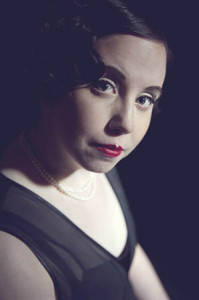 Regular readers already know about my writer-man-crush on Jim Butcher. I’m eagerly awaiting the next book in his Harry Dresden series, as are most good people I know.
Regular readers already know about my writer-man-crush on Jim Butcher. I’m eagerly awaiting the next book in his Harry Dresden series, as are most good people I know.
While waiting, I met Alex Hughes at the Willamette Writers Conference. She told me about her Mindscape series — PI stories about a telepath detective in a cyberpunk future. They’re kind of like Phil Marlowe meets Blade Runner. Great stuff.
Alex was kind enough to take a few minutes to answer some questions for us.
1. Let’s start with the numbers. How many books did you write before writing “Clean?” How many queries did you send for “Clean?” How long had you considered yourself a writer before making the sale?
Clean was my third completed novel. Clean was also my learning novel, on which I learned revision, scene structure, story structure, description, pacing, and a whole mess of other lovely and difficult things. By the time the final revision was done for the publisher, I’d taken it through eight drafts. Only a few small scenes survive from the first draft, and those heavily edited; the rest was rewrites and restructures.
I sent many queries for Clean, but more for my previous novel Valence. I believe everyone in the known universe turned that one down. I also got hundreds of rejections for short stories over the years–I sent my first one out to a magazine at age 15, and got a personal rejection note. This encouraged me to send many more stories but for years I made no sales whatsoever. I didn’t get a major project published until age 28, thirteen years later.
2. I’m not the first person to notice similarities between Mindspace and Harry Dresden. What are some other influences and inspirations that helped you create the Mindspace books?
I actually hadn’t read Harry Dresden until after Clean, and then only because people were remarking on it. I grew up on cop shows and Star Trek, and didn’t really see a difference for awhile 🙂 In college, I read a classic cyberpunk book called Catspaw by Joan D. Vinge, in which a tortured telepath struggles to make his way in a dark future world. I wanted to write something like that (I’d fallen in love with the concept), but I knew my guy had to be a detective because of the cop shows. I also had a close friend at the time who was a recovering anorexic who was very open about her struggle, and I know I wanted to talk about habits and addiction. For this kind of project, though, a substance seemed a simpler thing to understand and deal with. So the basic tenets of Clean were born.
As a note, though, Cherabino was originally named McNally or something, and was Irish, blond, and much meaner. My writer’s group in college made fun of me so strongly for that (apparently a cliche) that everything about her had to change.
3. Tell the story of your journey from query to publication. How long did it take? What were the best, worst and most surprising parts?
From the first idea in college to the draft that got the publisher’s attention was maybe seven years and as many drafts. I submitted draft five to the Amazon Breakthrough Novel Awards in 2009 and got back a review that the book was “mediocre.” I was so angry! I’d been working my tail off! It couldn’t be mediocre. So I went out and started finding the classes and teachers and resources I needed to be so amazing they couldn’t say no. I went to writing group after writing group, and I took classes online. I worked. I connected up with people from a Willamette conference, and we worked together. I took a massive online novel revising class. I worked some more. And then I applied in January 2010 to the Odyssey Writing Workshop and submitted the new draft to the ABNA that year on the same week. I got accepted to Odyssey, and the first day there I got the call from the publisher. I nearly had a heart attack.
The best part for certain was that call, as unexpected and out of the blue as it was. Followed closely by the day I heard the voice auditions for the audiobook of the novel. Hearing someone bring my character to life was *amazing.* It made it real.
The worst part is the uncertainty. It turns out that there’s more to publishing and being a successful author than just writing great books. Some of it–like marketing, and social media–you have to learn as you go as best you can. And some of it–like sales numbers–is completely outside of your control. Obsessing about a lot of things you can’t control (or might control, maybe) is a recipe for anxiety and disaster. I’ve had to learn to let things go and focus on the writing, which is what I loved in the first place. I’ve picked up knitting and yoga along the way as well. Yoga is *amazing* for mental focus and stress control.
What’s the most surprising part? I found out I’m a lot better at business sense than I thought I was. My gut is pretty good. And I found out I could write and revise a really good novel in four and a half months. Challenges bring out the best in you sometimes in a surprising way.
Check in next week for part two of Alex’s answers. She had so much to say I couldn’t fit it in just one blog post. Meanwhile, head over to Amazon to buy Clean, book one of the Mindscape series.
